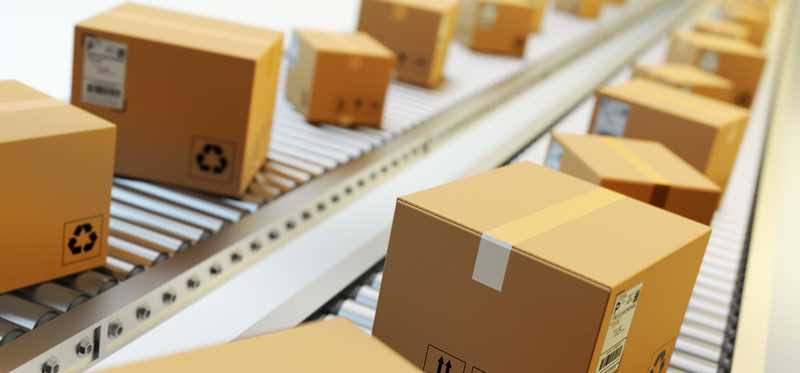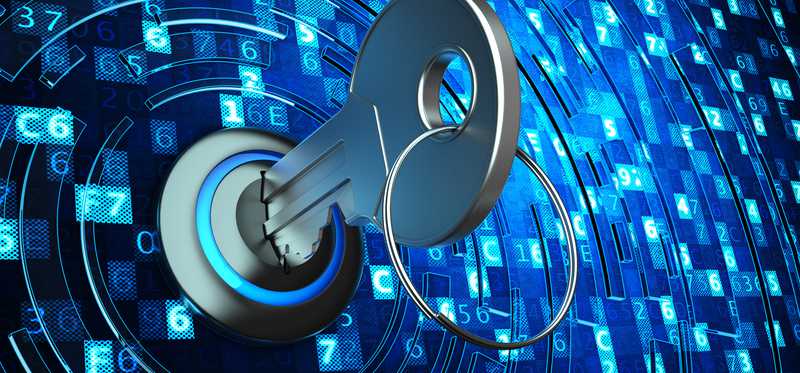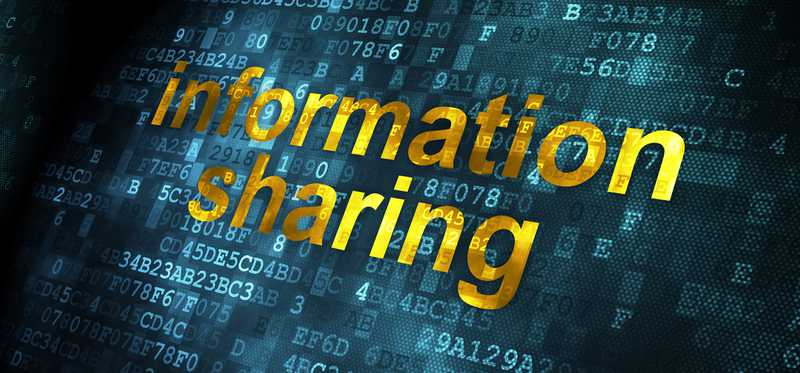8 Surprising Business Uses for Blockchain Technology

8 Surprising Business Uses for Blockchain Technology
Thinking outside the currency box
Pardon the cliché, but blockchain technology could just be the greatest thing since sliced bread for businesses.
For those of you unaware, blockchain is the digital, distributed, and decentralized ledger that often, but not always, underlies cryptocurrencies and is responsible for recording all transactions without the need for a financial intermediary. That long definition basically means it’s a new way of sending peer-to-peer or business-to-business payments without the need for a bank.
The evolution of blockchain, which was first pushed into the spotlight in 2009 when bitcoin debuted, is the result of perceived flaws with the existing banking system. Namely, excessive fees from banks acting as third parties during transactions, and lengthy processing times, especially in situations where a payment is moving across borders.
Blockchain aims to resolve these flaws for the financial services industry in three key ways. First, blockchain networks are decentralized, which means there’s no central area where transaction information is stored. This prevents any business, person, or hacker, from gaining control of a network. Secondly, it eliminate banks as the intermediary, which could lower transaction fees. Finally, it aims to dramatically speed up processing and settlement times. Rather than waiting up to five days for an overseas payment to validate and settle, blockchain offers the possibility of completing transactions almost instantly.
But for all the notoriety blockchain receives as a solution for the financial services industry, it overlooks its potential in non-currency applications. Here are eight surprising business uses for blockchain technology that you probably weren’t aware of.
Previous
Next

1. Supply chain management
Arguably the most exciting aspect of blockchain is what it could do with regard to improving transparency and efficiency for enterprise supply chains. From product origin to retail shelves, blockchain provides a transparent and immutable (i.e., unchanging) history that manufacturers, wholesalers, retailers, and perhaps even the consumer, could look back on. This transparent network gives retailers, wholesalers, and manufacturers the opportunity to quickly and precisely pinpoint inefficiencies, which would be a major improvement over the current paper-laden trail for most supply chains today.
For example, in January, IBM (NYSE: IBM) and Danish shipping company A.P. Moller-Maersk (known more commonly as Maersk) announced they’d be forming a separate joint venture company focused on developing blockchain solutions for the shipping industry. This move by IBM and Maersk will allow customers a real-time look at their supply chains while, more importantly, removing paper from the equation. By automating paper filings through the use of smart contracts -- protocols that facilitate, verify, or enforce the negotiation of a contract -- document approval should be quicker, removing the inefficiencies of long paper trails.
Previous
Next

2. Retail loyalty points
Make no mistake about it, the retail industry could benefit in a big way from a more transparent supply chain. However, blockchain can be just as important in helping drive traffic back into its stores. That’s because blockchain is the perfect disruptive technology to make loyalty rewards programs more effective.
Loyalty programs today are highly inefficient. They often rely on coupons, punch cards, or other paper materials, making it easy for fraud or inefficiency to occur. Blockchain technology could change this. It could allow retailers to create or use a digital currency that would be awarded with customer purchases. This currency would only be spendable at locations specified by the retailer, thusly keeping the consumer shopping within its preferred network of stores. Best of all, since blockchain is transparent and immutable, there’s virtually no chance of fraud or waste. IBM is already working on loyalty rewards solutions with startup Loyyal, and this is probably just the tip of the iceberg.
Previous
Next

3. Value-based healthcare
Blockchain solutions could also come in particularly handy in the healthcare sector, which has been steadily moving away from paper and toward digital applications for years. In its simplest form, blockchain could store patient records, with the patient possessing the key to determine who gets access to this information. It would be a really nice way of beefing up HIPAA laws protecting patient privacy.
But one of the most intriguing projects underway in the healthcare space with blockchain involves the idea of patients paying for the value of care received rather than the medical processes themselves. The decentralized Robomed Network in Russia and Dubai uses smart contracts to allow patients to pay for the results of their treatments rather than the number of treatments received. It’s an idea that’s gained growing support, despite its complexity, in the United States. As of last year, the Robomed Network had almost 9,000 patients and 30,500 services performed.
Previous
Next

4. Energy trading, resource logging, and compliance
The energy sector could also be a prime beneficiary of the blockchain revolution. In particular, blockchain ledgers are the perfect means for executing and recording energy trades, along with resource samples, in a transparent and immutable platform. Energy trades can, with blockchain, settle considerably faster than with traditional trading networks. Meanwhile, blockchain has allowed mining giants like BHP Billiton (NYSE: BHP) to record resource samples on a single ledger, replacing paper and spreadsheets in the process.
Additionally, the transparency of blockchain, and the ability to remove paper from the equation, provides a means of demonstrating compliance to regulators. Instead of inefficient analysis of paper spreadsheets, vast amounts of data can now more easily be analyzed for compliance.
Not to mention, the addition of smart contracts should improve supply chains and help reduce contract disputes since digital contracts are viewed as more legally binding.
Previous
Next

5. Internet-of-Things network management
Another exciting application of blockchain involves its tie-in with the Internet-of-Things (IoT). The IoT describes devices that are connected to a wireless network and capable of communicating with users, as well as with other devices. Smart thermostats, such as Nest, learn the heating and cooling habits of homeowners to more efficiently regulate the temperature of households, as well as save on electric bills. Similarly, a smart fridge could alert users about food spoilage, sending them reminders when items have been in the fridge for a long period of time. These are just two of countless examples of IoT in the household; but understand that IoT extends beyond just the confines of your home.
Blockchain could come into play as a regulator of IoT networks. For example, in October 2017, Cisco Systems (Nasdaq: CSCO) filed for the trademark of a blockchain platform that would oversee IoT networks. Cisco’s blockchain would identify devices connected to a wireless network, monitor the activity of those devices, and determine how trustworthy those devices are. However, it wouldn’t do this just for devices connected to the network at the beginning. It would continually and automatically assess the trustworthiness of new devices being added to the network, such as cars and smartphones.
Previous
Next

6. Decentralized IDs
Developers are also tinkering with the idea of using decentralized blockchain-based IDs to make operating a business and traveling easier, as well as to improve identity security. As an example, a blockchain-based ID would let travelers control transportation agents’ access to their information with a private key. This data would include places a person has traveled to, and it may or may not include personal data stored on the blockchain. It could potentially expedite security checks through an airport, and possibly free up resources at an airport for other uses.
One of the more intriguing blockchain ID projects is being headed by Microsoft (Nasdaq: MSFT), which announced its intention to put users in control of their digital identities in a recent blog post. Microsoft plans to develop a decentralized ID within its already existing Authenticator app used by millions of people. What’s particularly unique about this project, which is admittedly still in its very early stages, is that it would allow developers to customize apps and services that rely on attestations, thusly reducing the amount of personal information that needs to be processed when using apps.
Previous
Next

7. Data-sharing marketplace
While we’ve looked at a number of company-developed blockchain projects, there are cryptocurrency-backed solutions that are just as interesting. A perfect example is being developed by IOTA, which is currently the 10th-largest cryptocurrency by market cap.
IOTA recently debuted a beta version of its Data Marketplace, which is designed to allow companies to sell or share unused data with one another. It’s the IOTA Foundation’s opinion that most corporate data goes unused, so this marketplace would allow businesses to collaborate or inspire innovation within their industry. It’s particularly noteworthy that IOTA’s blockchain is described as “blockless,” meaning it’s an open-source network that’s completely free for users. With no transaction fee, IOTA has removed perhaps the greatest objection to using blockchain.
The IOTA Foundation notes that nearly 40 brand-name companies are participating in this testing and offering feedback in the process, albeit it has no official partners as of yet.
ALSO READ: The 1 Thing Everyone Overlooks With Blockchain Technology
Previous
Next

8. Copyright and royalty transparency
Finally, blockchain technology offers the ability to completely revolutionize how copyright laws and royalties are adhered to. Perhaps no industry is a better test case than the music industry, where ownership rights can be overlooked, especially when it comes to digital music downloads. The transparency of blockchain, along with smart contracts, would create a decentralized database that ensures artists maintain their music rights. It would also provide transparent and real-time royalty distributions to musicians.
Qtum, another budding cryptocurrency with a $2 billion market cap and a focus on partnering with major Chinese businesses, announced in January that it had formed a strategic collaboration with Baofeng Bokocloud. This may not be a familiar name in the U.S., but Baofeng’s media player in China, which offers streaming and video services, has more than 200 million active users. Baofeng plans to use Qtum’s blockchain as a means to shore up the copyright protections of artists, as well as to accept payments from users.
These eight business uses for blockchain are simply the tip of the iceberg. In the years to come, expect the experimentation in non-currency uses to really pick up.
Teresa Kersten is an employee of LinkedIn and is a member of The Motley Fool’s board of directors. LinkedIn is owned by Microsoft. Sean Williams has no position in any of the stocks mentioned. The Motley Fool is short shares of IBM. The Motley Fool recommends Cisco Systems. The Motley Fool has a disclosure policy.
Previous
Next
Invest Smarter with The Motley Fool
Join Over Half a Million Premium Members Receiving…
- New Stock Picks Each Month
- Detailed Analysis of Companies
- Model Portfolios
- Live Streaming During Market Hours
- And Much More
READ MORE
HOW THE MOTLEY FOOL CAN HELP YOU
-
Premium Investing Guidance
Market beating stocks from our award-winning service
-
The Daily Upside Newsletter
Investment news and high-quality insights delivered straight to your inbox
-
Get Started Investing
You can do it. Successful investing in just a few steps
-
Win at Retirement
Secrets and strategies for the post-work life you want.
-
Find a Broker
Find the right brokerage account for you.
-
Listen to our Podcasts
Hear our experts take on stocks, the market, and how to invest.
Premium Investing Services
Invest better with The Motley Fool. Get stock recommendations, portfolio guidance, and more from The Motley Fool's premium services.